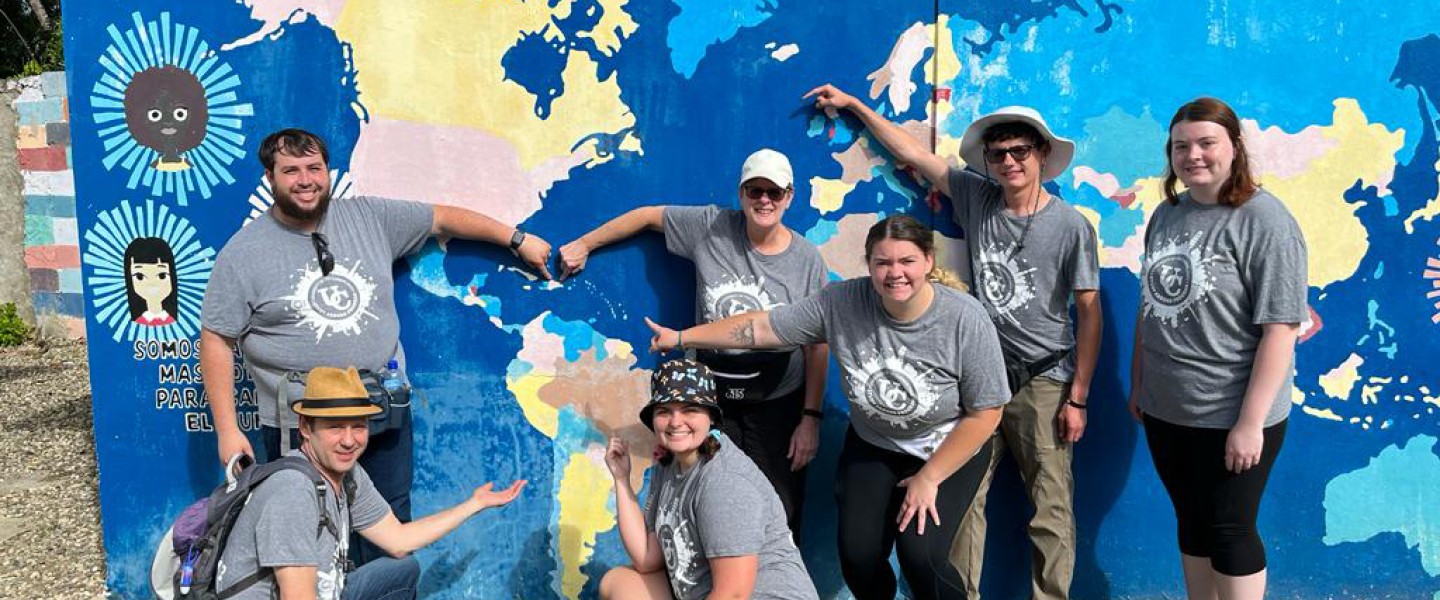There are a few things you'll need to know before you take off on your adventure.
You did it: you got into your dream study abroad program! You'll finally be able to see all the beautiful sights, try out all the regional foods, take all the beautiful pictures, and use the phrase, "when I was abroad, _______" every chance you get for the rest of your life. (It's hard not to talk about such a memorable experience.) But, before all that, there are a few things you'll need to know before you take off on your adventure.
Early Bird Gets the Worm
Get your passport early! You might hear this A LOT as you announce your plans to go abroad (I know I did), but it's only because this one is super important if you want a stress-free life leading up to the trip. It can take up to eleven weeks (yes, ELEVEN weeks) to get your passport in the mail after applying for and ordering it. So, give yourself plenty of wiggle room by getting it as soon as possible.
Mo’ Money, Mo’ Problems?
Even if most of your meals, transportation, etc., are covered within your study abroad program, there will always be that great-looking ice cream cone, intriguing coffee, or perfect souvenir that requires a little extra cash. Obviously, you won't be able just to whip out an American 20-dollar bill when you're in a foreign country. So, what do you do? I would advise looking into your bank's policy on foreign spending. Hefty fees might come with using your card at a store or an ATM while abroad. Some smaller banks do not allow you to use them while abroad at all. If either of these scenarios is true, you may want to look into opening a separate account for your trip. Remember to apply for a new account or debit card within at least two weeks before you go abroad so that the card has time to get to your house.
If you plan on taking cash to get exchanged, there are a few things that you'll need to keep in mind.
- Do not exchange your cash at the airport because they have some of the highest fees.
- Do not carry all your cash on your person; you never know when something could go wrong.
- Do not exchange a lot of cash at once. You may find yourself with a lot of leftover foreign money, and it is harder to exchange it when you return to the U.S. I have about a hundred euros I have no clue what to do with. Don’t do that to yourself.
Sprechen Sie Englisch?
Listen, I once had a German teacher tell me that pronunciation of the language was "beyond my capability," so I get that learning a new language is no easy task. However, it is beneficial to learn some key things in the language spoken wherever you are traveling. Though most people you will encounter likely will have a basic understanding of English, they may have limited knowledge of it or feel uncomfortable speaking it. So before you head off, try to learn some basic phrases that will be helpful to know, such as "Where is the bathroom?", "Where is the hospital?", "Do you speak English?", etc.
Don't forget the polite phrases as well! Even if someone is perfectly fluent in English, it is helpful to incorporate phrases such as "hello," "goodbye," "please," "thank you," "excuse me," etc., into the conversation. Most will notice and appreciate your effort, which means they may be friendlier and more open to helping you. Sometimes that means grabbing the translated menu without you having to ask for it. Other times, it means giving you extra information you wouldn’t have learned otherwise. Incorporating small, polite phrases like this in my study abroad experience made life much easier – and even saved me money – as I tried to navigate the city.
What's the Wi-Fi Password?
There are several ways to access data and cell service while abroad. You can look into your phone plan and see if you can get coverage abroad. Some plans sell coverage by the month, while others sell it by the day. You can also get preloaded cards that provide you with coverage (many people on my trip purchased these at the airport.)
When I went abroad, I was broke and decided to do none of the above. I planned to use free Wi-Fi wherever I went. Unfortunately, there weren't as many free Wi-Fi spots as I had hoped, and I relied heavily on my hostile's Wi-Fi. The bright side was that I took the time to unplug from my phone and enjoy the experience. The downside to this was that I had to also rely on the cell and data coverage of others so that I would not get lost and could call someone in case of emergency. This meant that I followed everyone else and had limited say in what we would do or see on free days. Those are just a few things to keep in mind as you decide for yourself.
Check for Quirks
Definitely do some Googling on wherever you are going; there might be some unexpected quirks about the country/area that are useful to know about before you go. For example, most European towns have lots of really old buildings. Therefore, there's usually only a tiny elevator, or there's no elevator at all. Knowing this before you go is helpful because you don't want to pack a huge and heavy suitcase, only to find out that you must haul it up several flights of stairs! Another small thing about some European towns is that you have to pay for public bathrooms. (Yes, you may have to pay to use the restroom.) It's usually only a euro, and it's used to keep the restrooms super clean (a nice perk), but you'd be out of luck if you need to go really bad but don't have a spare euro to use for a potty break. Oh, and check on the kind of electrical outlets the country has as well, to ensure your laptop and phone chargers will plug into the wall. You can find international travel/plug adapters online if needed. You never know what small, unexpected things about your destination will cause a minor annoyance if you aren't prepared!
It's a Dog-Eat-Dog World
First, let me say that your excellent professors will have your back while you are abroad, and there's nothing to fear on your trip. But it is still super important that you're always aware of your surroundings and conscious of what's happening around you. For example, I stopped at a grocery store abroad to grab a cheap lunch. I remembered giving the man my money and thinking that the change he gave me was off, but I was too overwhelmed by the new city to confront him about it. The same thing happened later at a different grocery store, but I said something about it this time. Good thing I confronted him, because my change was fifteen euros short! You never know who might try to take advantage of you as a traveler, so always keep up your guard. And remember what I said earlier about being extra polite? This kind of situation is where that might come in handy.
Congratulations! Now you're more equipped to have the best study abroad experience possible! It’s still a good idea to do a little research and ask other people you know who have been abroad what their best tips are. One of my favorite ways of preparing myself is to look up travel guides on Pinterest. If you’re like me, you’ll need to allot several extra hours for Pinterest tangents, but those are fun anyway.
Have fun on your trip! Au Revoir, Auf Wiedersehen, Arrivederci!

